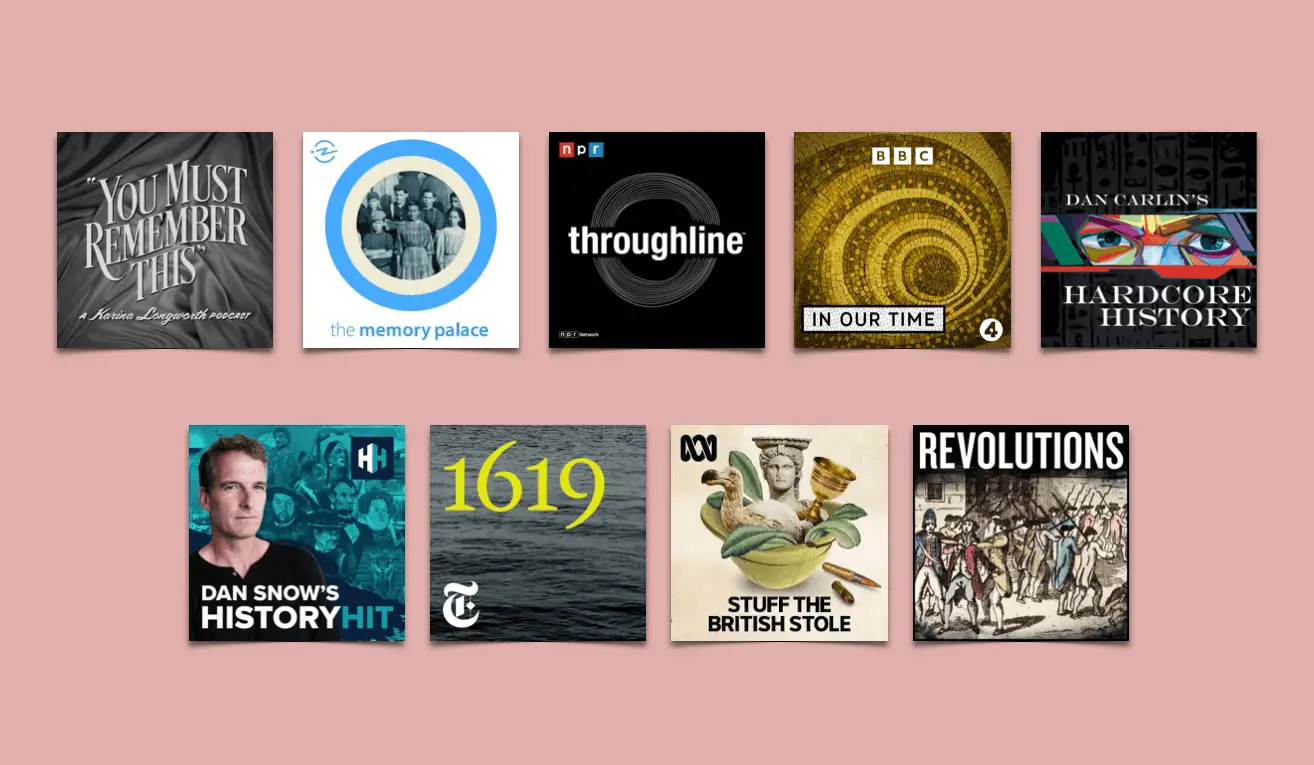Introduction
Welcome to the exciting world of podcasting! With the increasing popularity of podcasts, more and more people are diving into this medium to share their knowledge, stories, and passions with the world. One of the key decisions podcasters need to make is determining the ideal length of their episodes.
When it comes to podcast length, there is no one-size-fits-all answer. It depends on various factors, including your target audience, content type, and podcast genre. In this article, we will explore the different factors to consider when deciding how long your podcast episodes should be, as well as the pros and cons of shorter and longer episodes.
While there is no definitive answer, it’s important to strike a balance that keeps your audience engaged and delivers value. Whether you’re just starting out or a seasoned podcaster looking to optimize your content, we’ll provide insights and tips to help you make informed decisions about podcast length.
Factors to Consider when Determining Podcast Length
When setting the length of your podcast episodes, it’s crucial to consider several factors to ensure the best possible listening experience for your audience. Here are some key factors to keep in mind:
- Content Type: The type of content you cover in your podcast plays a significant role in determining its length. If your episodes involve in-depth interviews, complex discussions, or storytelling, longer episodes may be appropriate. Conversely, if you deliver quick tips or news updates, shorter episodes may be more suitable.
- Target Audience: Understanding your target audience is vital. Consider their preferences, habits, and attention spans. Are they busy professionals who prefer shorter episodes they can easily digest during their commute? Or are they enthusiasts who enjoy diving deep into longer, more informative episodes?
- Podcast Genre: Different podcast genres have their own conventions when it comes to episode length. For example, true crime podcasts often have longer episodes to explore intricate details of the cases, while comedy podcasts can typically get away with shorter, punchier episodes.
- Engagement: Keeping your audience engaged is crucial. Analyze listener behavior and feedback to determine the optimal length that holds their attention throughout the episode. Experiment with different episode lengths and monitor audience retention to find the ideal duration.
- Guests and Co-hosts: If you regularly feature guests or have co-hosts, consider their availability and the dynamics of the conversation. Longer episodes may be necessary to allow for more in-depth discussions or multiple perspectives.
Remember, these factors are not standalone considerations. It’s important to find a balance that aligns with your podcast’s goals while catering to your audience’s preferences.
The Importance of Audience Engagement
One of the main goals of any podcast is to engage and captivate the audience. Regardless of the length of your episodes, maintaining audience engagement throughout is paramount. Here’s why it matters:
1. Retaining Attention: In today’s fast-paced world, people have shorter attention spans. Long, meandering episodes may cause listeners to lose interest and tune out. Engaging content, delivered in an appropriate duration, helps retain attention and keeps listeners coming back for more.
2. Building Connection: Engaged listeners are more likely to connect with your podcast on a deeper level. They become loyal fans, eagerly anticipating new episodes and sharing your content with others. This connection can lead to increased visibility, growth, and even monetization opportunities for your podcast.
3. Active Participation: Engaged listeners are not just passive consumers; they actively participate and engage with your podcast. They leave reviews, send feedback, share episodes on social media, and become part of your podcast community. Their involvement helps create a vibrant and interactive listener base.
4. Word-of-Mouth Promotion: Engaged listeners are more likely to recommend your podcast to others. They become your brand ambassadors, spreading the word about your show and attracting new listeners. Positive word-of-mouth promotion can significantly enhance the reach and impact of your podcast.
5. Long-Term Growth: Establishing a strong connection with your audience and keeping them engaged can lead to long-term growth and sustainability for your podcast. Engaged listeners are more likely to subscribe, leave positive reviews, and support your podcast through platforms like Patreon, helping you continue to create quality content.
Remember, engagement is not solely determined by episode length. It’s about the overall experience you provide to your listeners, which includes content quality, delivery style, storytelling, and interaction. Utilize different techniques such as storytelling, interviews, audience Q&A sessions, or listener involvement segments to maintain engagement throughout your episodes.
By focusing on audience engagement, you can create a podcast that not only resonates with your listeners but also sets the foundation for sustainable growth and success.
Pros and Cons of Shorter Podcasts
Shorter podcast episodes, typically ranging from 10 to 30 minutes, have their own set of advantages and disadvantages. Let’s explore the pros and cons of shorter podcasts:
Pros:
- Convenience: Shorter episodes are convenient for listeners who are short on time. They can easily fit into busy schedules, whether it’s during a quick commute, a workout session, or a lunch break.
- Focused and Concise: Shorter podcasts tend to be more focused and concise, allowing you to get straight to the point. This can be ideal for delivering quick tips, news updates, or bite-sized insights without unnecessary fluff.
- Increased Listener Retention: Shorter episodes can help improve listener retention rates. With less time commitment required, listeners are more likely to listen to the entire episode, resulting in higher engagement and satisfaction.
- Consistency: Producing shorter episodes may be more manageable and allow for more consistent release schedules. This is especially beneficial for podcasters with limited time or resources.
Cons:
- Limited Depth of Content: Due to the time constraints, shorter episodes may not allow for in-depth discussions or complex storytelling. This can be a drawback if your podcast requires detailed exploration of topics.
- Less Room for Guest Contributions: If your podcast often features guests, shorter episodes may limit the time available for their contributions and insights.
- Challenging in Some Genres: Certain podcast genres, such as investigative journalism or deep-dive interviews, may require longer episodes to fully explore the subject matter.
Ultimately, whether shorter podcasts are beneficial for your show depends on your content type, target audience, and podcasting goals. It’s important to assess the pros and cons carefully while considering your unique circumstances.
Keep in mind that the key to creating successful shorter podcasts lies in delivering high-quality, well-structured content that provides value within the limited timeframe. Engaging storytelling, clear delivery, and focused topics can help maximize the impact of shorter episodes.
Pros and Cons of Longer Podcasts
Longer podcast episodes, typically ranging from 45 minutes to a couple of hours or more, have their own set of advantages and disadvantages. Let’s explore the pros and cons of longer podcasts:
Pros:
- In-Depth Exploration: Longer podcast episodes allow for more in-depth exploration of topics. This can be beneficial for complex discussions, interviews with multiple guests, or storytelling that requires time to unfold.
- Comprehensive Coverage: With extra time, longer episodes provide the opportunity to cover a topic comprehensively. Listeners can gain a deeper understanding and appreciate the nuances of the subject matter.
- Engaging Storytelling: Lengthier episodes give podcasters the freedom to craft engaging narratives and take listeners on a captivating journey. This can enhance the overall listening experience and keep listeners hooked until the end.
- Guest Contributions: Longer episodes provide ample time for guests to share their insights, stories, and expertise. This allows for more meaningful conversations and the opportunity to dive deeper into a guest’s perspective.
Cons:
- Time Commitment: Longer episodes require a significant time commitment from both podcasters and listeners. This may limit the audience to those who have the availability and willingness to invest a substantial amount of time.
- Potential for Waning Attention: With longer episodes, there is a risk of listeners losing interest or becoming fatigued. Sustaining engagement throughout the entire duration can be a challenge if the content is not captivating enough.
- Editing and Production: Longer episodes generally require more editing and production work. This means additional time and effort for podcasters in post-production to ensure a polished final product.
Deciding whether longer podcasts are suitable for your show depends on various factors, including your content type, target audience, and podcasting goals. Assess the pros and cons while considering the nature of your content and the preferences of your audience.
Remember, regardless of the length, the key to creating successful longer podcasts lies in maintaining engagement throughout the episode. Incorporate storytelling techniques, engaging discussions, and effective pacing to captivate your audience and keep them invested until the end.
Ideal Podcast Length for Different Podcast Genres
When determining the ideal length for your podcast episodes, it’s important to consider the specific genre or niche you are targeting. Different podcast genres have their own conventions and listener preferences. Here’s a breakdown of the ideal podcast length for various genres:
Interview-Based Podcasts: For interview-based podcasts, the ideal length often depends on the depth of conversation and the number of guests. Aim for a duration that allows for meaningful discussions without becoming overly long-winded. Generally, interview episodes ranging from 30 minutes to an hour strike a good balance.
Storytelling and Narrative-driven Podcasts: Storytelling podcasts benefit from longer episodes as they allow for proper story development and immersive storytelling. These episodes typically range from 45 minutes to several hours or even serialized seasons.
News and Current Events Podcasts: Quick updates and news-focused podcasts benefit from shorter episodes to provide timely information without overwhelming listeners. Aim for episodes between 10 to 30 minutes to deliver concise and relevant news updates.
Educational and How-to Podcasts: Educational and how-to podcasts should keep the content focused and actionable. Episodes ranging from 20 minutes to an hour work well, giving listeners enough time to learn new skills or gain insights without losing interest.
Comedy and Entertainment Podcasts: Comedy and entertainment podcasts often have more flexibility in terms of episode length. However, shorter episodes tend to be more popular in this genre, ranging from 20 to 45 minutes, as they can maintain energy and comedic timing without becoming too lengthy.
Roundtable Discussions and Panel Shows: Roundtable discussions and panel shows often involve multiple participants and diverse viewpoints. These episodes generally range from 45 minutes to a couple of hours, providing enough time for robust conversations without becoming excessively long.
Genre-Specific Podcasts: Depending on the genre-specific content, such as true crime, history, or sports, the ideal length varies. True crime and historical podcasts often have longer episodes, allowing for deep dives into cases or historical events. Sports podcasts can range from quick analysis episodes to in-depth discussions, depending on the sport and topic.
Remember that these are general recommendations and guidelines. Ultimately, the ideal podcast length will depend on your specific content, target audience, and the goals you have set for your podcast. Pay attention to listener feedback and engagement to refine and adjust the length accordingly.
How to Gauge the Ideal Length for Your Podcast
While there are general guidelines for podcast episode lengths in different genres, it’s essential to gauge the ideal length specifically for your podcast. Here are some steps to help you determine the optimal duration for your episodes:
1. Know Your Audience: Understand your target audience and their preferences. Consider their demographics, habits, and the time they have available to listen to podcasts. Conduct surveys, monitor listener feedback, and engage with your audience to gain insights into their preferences.
2. Analyze Listener Behavior: Utilize analytics tools and platforms to assess listener behavior. Check the average listening duration, drop-off points, and engagement metrics, such as completion rates, to identify patterns. This data will provide valuable insights into how long your audience is willing to listen to your episodes.
3. Experiment with Different Lengths: Test different episode lengths to see how your audience responds. Release episodes of varying durations and analyze the feedback and engagement for each one. This experimentation will help you gauge the ideal length that strikes a balance between engagement and retention.
4. Consider Content Type: Evaluate the type of content you deliver in your podcast. If your content requires in-depth discussions or storytelling, longer episodes may be necessary. If you provide quick tips or updates, shorter episodes may be more appropriate. Align the length with the content’s needs and the level of detail you wish to present.
5. Monitor Engagement: Keep a close eye on audience engagement metrics, such as comments, reviews, social media interactions, and listener growth over time. Assess how well the length of your episodes contributes to audience engagement and use this feedback to fine-tune your podcast length.
6. Seek Listener Feedback: Encourage listeners to provide feedback and suggestions regarding the length of your episodes. Engage with them on social media, through email, or through direct listener surveys. This direct input from your audience will help you understand their preferences and make informed decisions about episode length.
7. Adapt and Evolve: Podcasting is a dynamic medium, and as your podcast grows, your audience and their needs may change. Continuously reassess your episode length based on audience feedback, industry trends, and evolving content demands. Adapt and evolve your podcast length to keep it fresh and engaging.
Remember that finding the ideal length is an ongoing process. Regularly evaluate your podcast’s performance, gather feedback, and stay attuned to your target audience’s needs to ensure your episodes are engaging and impactful.
Tips for Keeping Your Podcast Engaging, Regardless of Length
Regardless of the length of your podcast episodes, maintaining audience engagement is crucial for the success of your show. Here are some tips to keep your podcast engaging, regardless of its duration:
1. Plan and Structure Your Content: Take the time to plan and structure your episodes effectively. Create an outline or script to guide the flow of your discussion or storytelling. This ensures a logical progression and keeps your audience engaged from start to finish.
2. Start Strong: Grab your listeners’ attention right from the beginning. Use intriguing intros, captivating stories, or thought-provoking questions to hook your audience and entice them to continue listening.
3. Vary Your Format: Incorporate a mix of formats to keep your podcast fresh and engaging. Experiment with interviews, solo episodes, panel discussions, or even live episodes. This variety adds dynamism and caters to different listener preferences.
4. Maintain a Conversational Tone: Speak in a conversational tone that resonates with your audience. Avoid sounding robotic or overly scripted. Engage with your listeners as if you’re having a one-on-one conversation, fostering a sense of connection and authenticity.
5. Use Stories and Anecdotes: Stories and anecdotes captivate listeners and make information more relatable. Incorporate personal experiences, case studies, or examples to illustrate your points and add depth to your podcast episodes.
6. Incorporate Engaging Interviews: If your podcast features interviews, prepare thoughtful questions and foster engaging conversations. Allow your guests to share their expertise, experiences, and stories, creating a lively dialogue that intrigues your listeners.
7. Add Music and Sound Effects: Utilize music and sound effects strategically to enhance the audio experience. Intro and outro music, transition music, or sound effects can elevate the overall production value and create a more immersive listening experience.
8. Encourage Audience Interaction: Make your podcast interactive by inviting listener questions, comments, or even hosting live Q&A sessions. Engage with your audience on social media, respond to feedback, and create a sense of community around your podcast.
9. Keep Episodes Well-paced: Pay attention to the pacing of your episodes, regardless of their length. Avoid long stretches of monologue or repetitive information. Break up content into segments, ask questions, and maintain a dynamic tempo to keep listeners engaged throughout.
10. Edit and Polish: Invest time in post-production editing to ensure a polished final product. Remove any unnecessary tangents, awkward pauses, or repetitive content that could hinder engagement. The quality and professionalism of your podcast impact the overall listening experience.
Remember that engagement goes beyond just the length of your episodes. It’s about creating valuable content, fostering a connection with your audience, and continuously refining your podcast to meet their needs and expectations. Keep experimenting, listening to feedback, and growing as a podcaster to keep your show engaging and memorable.
Final Thoughts
As a podcaster, determining the ideal length for your podcast episodes is an important decision that can impact audience engagement and overall success. While there are no hard and fast rules, considering factors such as content type, target audience, and podcast genre can help guide you in finding the right length. Additionally, continuously monitoring listener behavior, gathering feedback, and adapting based on audience preferences are crucial for maintaining engagement.
Whether you opt for shorter or longer episodes, the key is to focus on delivering value and keeping your audience captivated. Engaging storytelling, thoughtful discussions, and a conversational tone can all contribute to an enjoyable listening experience, regardless of the episode length.
Remember to experiment, try new formats, and remain open to evolving your podcast’s length as your audience and content demands change. Keep exploring ways to connect with your listeners, incorporate their feedback, and foster a dynamic podcast community.
With careful consideration, experimentation, and a commitment to audience engagement, you can find the ideal length for your podcast episodes and lay the foundation for a successful and engaging show.

























